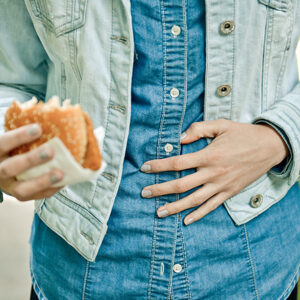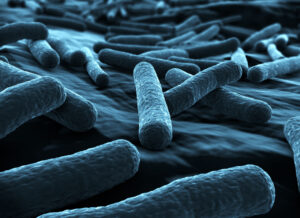Whether you’re eating at a restaurant, picking up a pre-packaged meal on the go, or doing your usual grocery shopping, you expect food safety procedures to be followed so that you and your family are not exposed to food contaminated by harmful bacteria. Unfortunately, food poisoning is a common experience for many people and families, even those who take steps to avoid food poisoning.

Hiring a lawyer for the injuries food poisoning caused you or a loved one can seem like a drastic step, but if the illness has significantly impacted your life or if you have had to seek medical treatment for it, you are entitled to compensation for your losses and injury.
A food poisoning lawyer from Regan Zambri Long can meet with you for a free case evaluation to discuss your case and the next steps you should take. You can schedule an appointment online or by calling 202-960-4596.
At its most basic, food poisoning is the result of germs, bacteria, or other contaminants in and on the food or water you consume. These toxic microbes can spread to food at any time: during production, processing, storing, shipping, or preparation.
Common foods that contain some kind of illness-causing microbe include:
It is common for contaminants to pass from one food to another, either from failure to wash hands, preparation utensils, or preparation surfaces. Food can also grow microbes if it is undercooked or not kept at the right temperature for serving or storing.
When food is contaminated and then consumed, you are at risk for a case of food poisoning. The Centers for Disease Control and Prevention (CDC) estimates that 48 million people suffer from foodborne illnesses each year, with 128,000 hospitalized and 3,000 deaths.
Many foodborne microbes are spread through feces and/or contaminated water. If water is contaminated by animal feces and then is used to water produce, for example, the produce may become contaminated. This is why proper food safety while preparing food is the key to preventing food poisoning.
Different kinds of microbes can cause food poisoning, including viruses, bacteria, parasites, and even chemicals. A whole host of different contaminants can cause different foodborne illnesses, but when an illness occurs it is often one of several usual suspects.

However, because of the ease with which it spreads, you could also be infected by other means, such as contaminated produce that wasn’t washed or processed properly, a kitchen worker who didn’t wash their hands, or even from a petting zoo. Symptoms usually begin 3 to 4 days after exposure.
Outbreaks of Norovirus are common, as the virus spreads easily and quickly. Fresh fruits, vegetables, and shellfish are some common culprits of spreading Norovirus, but you can also develop an infection from contact with another infected person.
Many of the Norovirus outbreaks occur in restaurants due to workers touching, and thereby contaminating, food. Symptoms usually begin showing 12 to 48 hours after exposure.
The CDC estimates that Salmonella causes 1.38 million infections each year. Salmonella is often linked to raw sprouts and vegetables, eggs, and chicken. Most people recover on their own without requiring additional medical attention, but Salmonella can cause lasting health effects if the case is severe enough. Signs of infection begin showing anywhere from 6 hours to 6 days after exposure.
This bacteria causes an infection called listeriosis, which can be dangerous and even fatal to pregnant women, their newborn babies, and the elderly. The CDC estimates 1,600 people get listeriosis and food poisoning each year.
This bacteria has historically been linked with deli meats and hot dogs, but recently outbreak investigators have found it commonly occurring in soft cheeses and produce, including quesos, brie, feta, raw sprouts, and melons. Signs of a listeria infection are usually detected within two weeks of exposure.
Responsible for an estimated 1.5 million infections each year, Campylobacter is most commonly contracted by touching or consuming raw or undercooked poultry, though other raw meats and seafood can also be contaminated. Most people recover from infection on their own, but others require antibiotics. Signs of infection usually start showing within 2 to 5 days after exposure.
Many other kinds of microbes can cause food poisoning of varying degrees of severity. Long-term effects are not the normal outcome of most cases of food poisoning, but they do occur. If you have a serious case of food poisoning or have a confirmed case that has led to complications, you should consult with an experienced food poisoning lawyer from Regan Zambri Long to discuss your next steps.
While each infection can be different for each person, many food poisoning cases share common symptoms. These include:
You may also experience dehydration when food poisoning occurs, particularly if you experience diarrhea and/or vomiting. You will need to drink fluids and closely monitor this symptom, as it may require medical attention.

Severe symptoms that warrant a trip to the doctor can include bloody diarrhea, diarrhea lasting more than three days, fever of 102 F degrees or higher, frequent vomiting that makes it impossible to keep down liquids, and signs of dehydration (lack of urination, dry mouth and throat, and/or dizziness when getting up).
Additionally, if you have any preexisting medical condition, a weakened immune system, or you are pregnant, it is a good idea to seek medical care to be safe.
Each contaminant has a different time frame in which symptoms begin showing. Depending on the infection, you could show signs as soon as 30 minutes after consuming contaminated food or contaminated water. Other infections can take as long as two weeks to begin showing symptoms. Many infections show symptoms within the first 24 hours, but some may take longer.
In general, symptoms of food poisoning last anywhere from a few hours to a few days, depending on the kind of infection and its severity. In most cases, people can recover without medical intervention. Some people will require a round of antibiotics to kick the infection.
However, some people may require more rigorous medical care, especially if the case is severe and/or develops into a serious medical condition. If you suspect food poisoning is the cause of your illness and your symptoms either get worse or do not go away after a few days, you should seek medical attention.
In most cases of food poisoning, the best thing to do is rest and keep hydrated until the illness passes. Most times medical attention is not necessary to treat food poisoning. If you experience serious symptoms or if your illness seems to linger, you should seek medical attention.
If you do, you should do your best to provide the doctor with as much detail about when you got sick, what you consumed shortly before becoming ill, and how long your symptoms have been going on. You can also request a lab test to check for specific contaminants. This is generally done via a stool sample. Be sure to also mention any factors that increase your risk for serious complications, such as a weakened immune system, underlying conditions, or pregnancy.
If you do seek medical attention and get a lab result showing the presence of a contaminant or foodborne illness, you should consult with an experienced food poisoning lawyer, as you may be entitled to compensation for your medical expenses and any lost wages. The attorneys at Regan Zambri Long can help you explore your options with a free case evaluation.
You can encounter contaminated food in many different places, for many different reasons. This can include food contaminated during production or transit, cross-contamination, poor food preparation procedures, lack of sanitary measures, and failure to keep or store food at appropriate temperatures.
Perhaps the most common, foodborne illnesses occur in restaurants where food preparation and/or storage is not up to health code standards. This could stem from failing to wash produce, cross-contamination, spoiled or expired food, food that isn’t cooked properly, or even the failure of food handlers to wash their hands or utensils.
Cafeterias
Cafeterias in schools, colleges, hospitals, and other places run the same risks as restaurants for contamination. Additionally, for cafeterias that supply prepackaged food, staff must ensure that these meals are stored properly and regularly checked for expiration.
Even grocery stores are not exempt from contaminated food and are liable for food poisoning. Fresh fruits, raw vegetables, and refrigerated foods are often recognized as culprits for contamination, but delis are also a frequent cause of foodborne illnesses. Deli meat, meat spreads, and soft cheeses can very easily pick up and spread certain bacteria, including listeria. If counters and slicers aren’t cleaned often and properly, it can lead to an outbreak within deli products.
Unsurprisingly, people with weakened immune systems or underlying conditions are more at risk for serious conditions and complications with food poisoning. Additionally, older adults, young children, and pregnant women are also at higher risk.
What most healthy individuals could recover from on their own can quickly devolve into a life-threatening condition for someone whose health is already compromised in one way or another.
The CDC notes that people with diabetes, liver or kidney disease, alcoholism, HIV/AIDS, and people receiving chemotherapy or radiation are more likely to develop a serious infection from contaminated food because their bodies cannot fight off germs and illnesses as effectively.

The CDC tracks known outbreaks and issues recalls on contaminated foods. So if you were served or sold food that was identified as part of an outbreak—and you can prove it—you may have grounds for a case.
Otherwise, you will need to prove that you were made sick by a specific meal or food. Unless you have sought medical treatment and they ran tests on your samples, it is unlikely that you would be able to prove food poisoning after the fact.
The value of a food poisoning case depends on the facts and severity of your illness. In general, you can claim financial compensation to cover your medical bills, lost wages, and non-economic damages such as pain and suffering.
You will need to partner with an experienced food poisoning lawyer as soon as you suspect food poisoning so that you can work together to prove that a certain food or dining experience caused your illness. The lawyers at Regan Zambri Long will meet with you for a free consultation to discuss your case and the next steps you should take.
It is difficult to pursue a legal claim while you are in the middle of a sickness, but when it comes to foodborne illnesses you must get started right away to have the best chance at recovering the compensation you are due.
If you have experienced food poisoning in the DC Metro area, call the Regan Zambri Long Washington, DC, Virginia or Maryland food poisoning lawyers. Our experienced attorneys will work on your behalf to establish a connection between your illness and a certain food or dining experience. We know that the negligence of another person or business should not cause you pain and suffering, but when it does justice must be served.